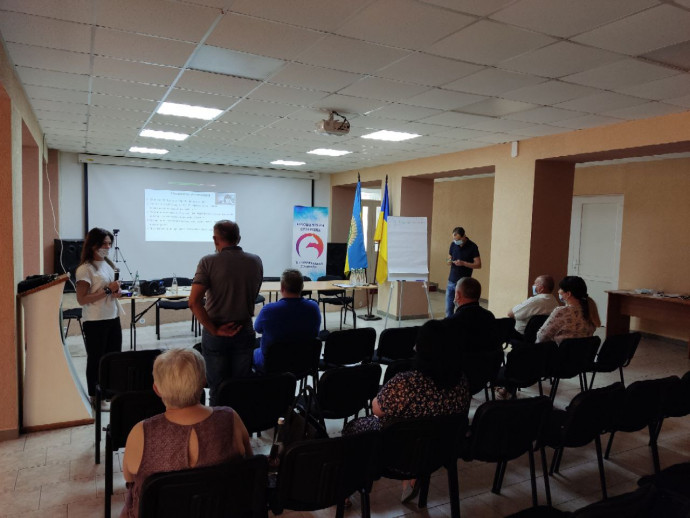Dialogue meeting on horse breeding in Belovodskaya OTG

At the initiative of gismaovc intermediaries, representatives of the State Enterprise «horse breeding of Ukraine» and the Ministry of economy of Ukraine were invited to the meeting, who in turn had the opportunity to hear about the situation around social infrastructure facilities and the prospects for its transfer to the balance of AHS.
The lawyer of the State Enterprise «horse breeding of Ukraine» noted the readiness of cooperation with the Belovodskaya ah to consider this issue. By agreement of the head of the state enterprise, The Legal Service sent an appeal to the Ministry of economy of Ukraine with a request to provide an algorithm for transferring social infrastructure objects that are on the balance of Derkulsky Stud Farm No. 63 and Novolimarovsky Stud Farm No. 61 of the state enterprise «horse breeding of Ukraine» to the balance of Belovodskaya AH.
The representative of the Ministry of economy noted that after the initiative of intermediaries, the appeal of the Working Group and the appeal of the state enterprise «horse breeding of Ukraine», they will soon prepare a letter describing the necessary procedures and a certain algorithm for further actions, which will allow us to start the process of preparing for the transfer of social infrastructure facilities to the balance of the Belovodsk AH.
In turn, representatives of the AH invited a representative of the State Enterprise «horse breeding of Ukraine» to participate in the Working Group for prompt resolution of pressing issues and further coordination.
All participants noted the importance of the dialogue meeting and stressed the need to continue the dialogue on the organization of gismaovc intermediaries and further receive expert support for consulting in the process of implementing the algorithm of joint actions.
The dialogue meeting was held by gismaovc mediators within the framework of the UN programme for the restoration and development of peace.
The United Nations program for the restoration and development of peace.it is implemented by four UN agencies: the United Nations Development Programme (UNDP), the United Nations Framework for gender equality and women's empowerment (UN Women), the United Nations Population Fund (UNFPA) and the Food and Agriculture Organization of the United Nations (FAO).
The program is supported by twelve international partners: the European Union (EU), the European Investment Bank (EIB), as well as the governments of Great Britain, Denmark, Canada, the Netherlands, Germany, Norway, Poland, Switzerland, Sweden and Japan.

